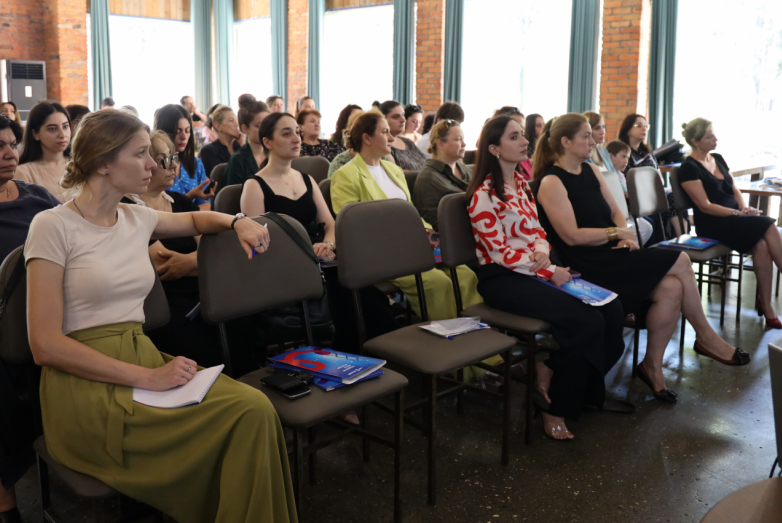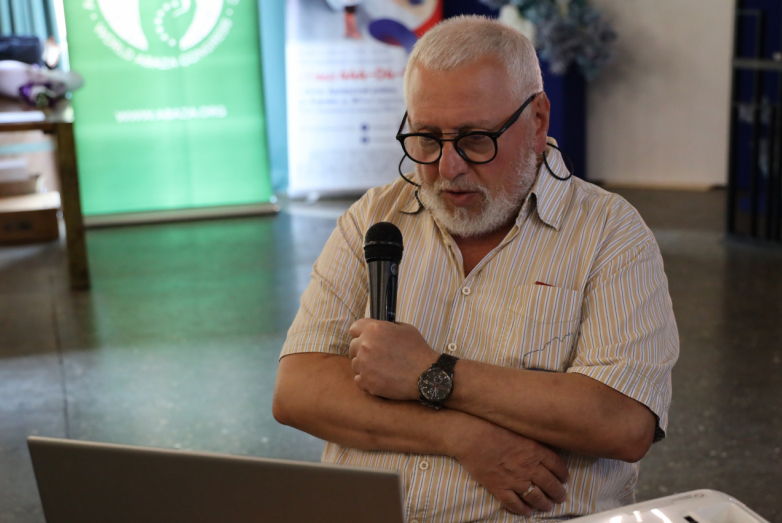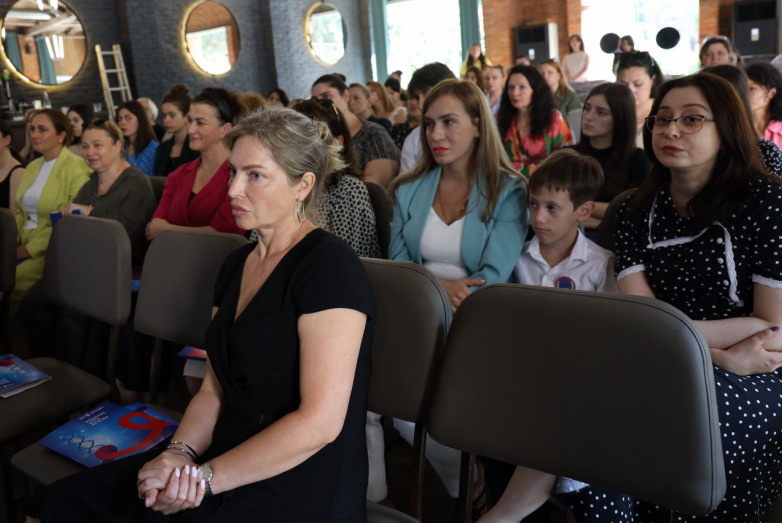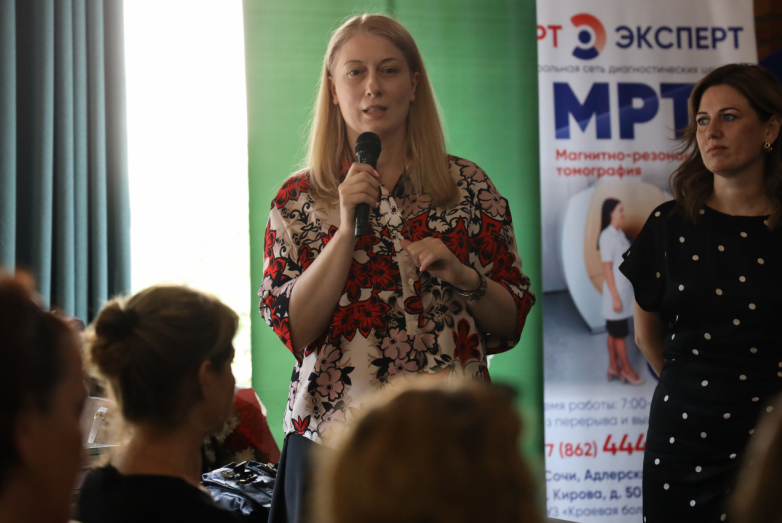Participants and guests of the conference discussed the rehabilitation potential of children with delayed psycho-speech development.
The Parents’ Club of the World Abaza Congress held a meeting on the rehabilitation potential of children with mental and speech delays, their social adaptation and education. The conference brought together doctors, speech pathologists, speech therapists, teachers, representatives of social structures and parents. The guests were neurophysiologist Alexander Gorelik, head of the Albamed Medical Center, neurologist Albina Khodzhava, defectologist Elena Stogova, radiologist of the "MRI-expert-Sochi" Oleg Timonin, as well as the Commissioner for Children’s Rights in the Republic of Abkhazia Maktina Dzhindzholia. The meeting was moderated by Izolda Khagba, head of the department of education, social activity and health of the WAC.
The meeting was opened by the organizer of the conference, head of the Albamed Medical Center, pediatric and adult neurologist Albina Khodzhava. According to her, the main goal of the conference is to combine the medical and social components on the issue of the rehabilitation potential of children with mental and speech delays.
"Both doctors and workers from the social structure of education are present at the meeting. We believe it is necessary to develop such discussion platforms to purposefully solve problems and provide assistance to children with neurological diagnoses. Abkhazia already has diagnostic potential. Children with speech and mental development problems do not need to travel outside the republic. Before going to a speech therapist, you first need to contact a neurologist and identify the organic causes of the delays in the central nervous system. Speech therapists should receive children with the results of EEG studies, ultrasound of cerebral vessels, neurosonography, and, if necessary, MRI. Only after a medical examination has been completed and therapy has been selected should you contact other specialists. The medical basis is primary. Only then does routing begin in the form of selecting the necessary classes, massages, exercise therapy, etc." Khodzhava emphasized.
The event was also timed to coincide with the visit to Abkhazia of a neurophysiologist, head of the functional diagnostics office of the St. Petersburg National Medical Research Center for Psychiatry and Neurology named after Bekhterev Alexander Gorelik.
"I came to Abkhazia with joy, I am ready to share my knowledge and best practices with my Abkhazian colleagues. According to my observations, this is a worldwide problem; an increase in neurological diseases is observed in various countries, and the increase is catastrophic. Effective assistance is the result of the work of entire teams of specialists, from pediatric neurologists to physical therapy trainers,” he noted.
The doctor presented a lengthy report to the conference guests on the neurophysiological therapy and rehabilitation.
“We talked about modern views on the physiology of the process, on problems in neurophysiology and shared some thoughts on what an adequate and comprehensive system of rehabilitation measures ideally would look like in the 21st century,” said Gorelik.
The neurophysiologist called on parents to be vigilant and attentive, pay attention to all the peculiarities in the behavior and development of children, and also contact specialists timely.
Defectologist Elena Stogova shared her experience and best practices with the meeting participants, in particular about the effectiveness of working with motor skills and integrative activities. Using the example of a child with Down syndrome, the specialist spoke about the positive results of the correction and emphasized the need to work with both the family and the school staff.
Commissioner for Children's Rights Maktina Dzhindzholia focused on the issues of social adaptation of children with disabilities in Abkhazia. She focused on a wide range of issues in the field of inclusive education.
“At the moment, about 150 people attend auxiliary schools, 139 children with mild disabilities are studying in general education schools. There is an obvious lack of classes and premises. We propose to create one inclusive school in each district of Abkhazia. We are forced to admit that the rights to education of these children are infringed,” she noted.
The discussion between doctors, parents and guests of the Parents' Club was lively. Possible ways to solve problems were vigorously discussed in the hall.
At the end of the discussion, the head of the department of education, social activity and health of the WAC, Izolda Khagba, summed up the results of the medical and social conference.
“Traditionally, meetings of the Parents' Club at the WAC are devoted to various problems of raising and socializing children - both healthy and with disabilities. Today the second meeting was held jointly with the Albamed Medical Center. Specialists from various fields spoke, shared the results of their work, and talked about advanced treatment methods. The conference was attended by doctors who directly work in this field. As they personally confessed, they gained a lot of useful information. At the conference, advanced treatment methods that are already used in Abkhazia, in particular at the Albamed Medical Center, were presented. However, not everyone knows about them,” Khagba noted.
Khagba emphasized the importance of the social component of the conference and called on society for dialogue on such topics, as well as steps that would improve the situation at different levels.
The Parents’ Club is a special project of the World Abaza Congress. The club began its work in November 2019 in Sukhum, and in 2021 it began to be held in Gagra. Any parent can become a member of the Parents’ Club. The main condition is “interest and motivation.” The Club holds meetings with psychologists, pediatricians, and various experts in the field of child upbringing and development. The topic of the rehabilitation potential of children with delayed speech and mental development is one of the most popular and frequently discussed. Previously, the WAC, together with the Albamed Medical Center, held such a meeting in a narrower format in Gagra.




to login or register.